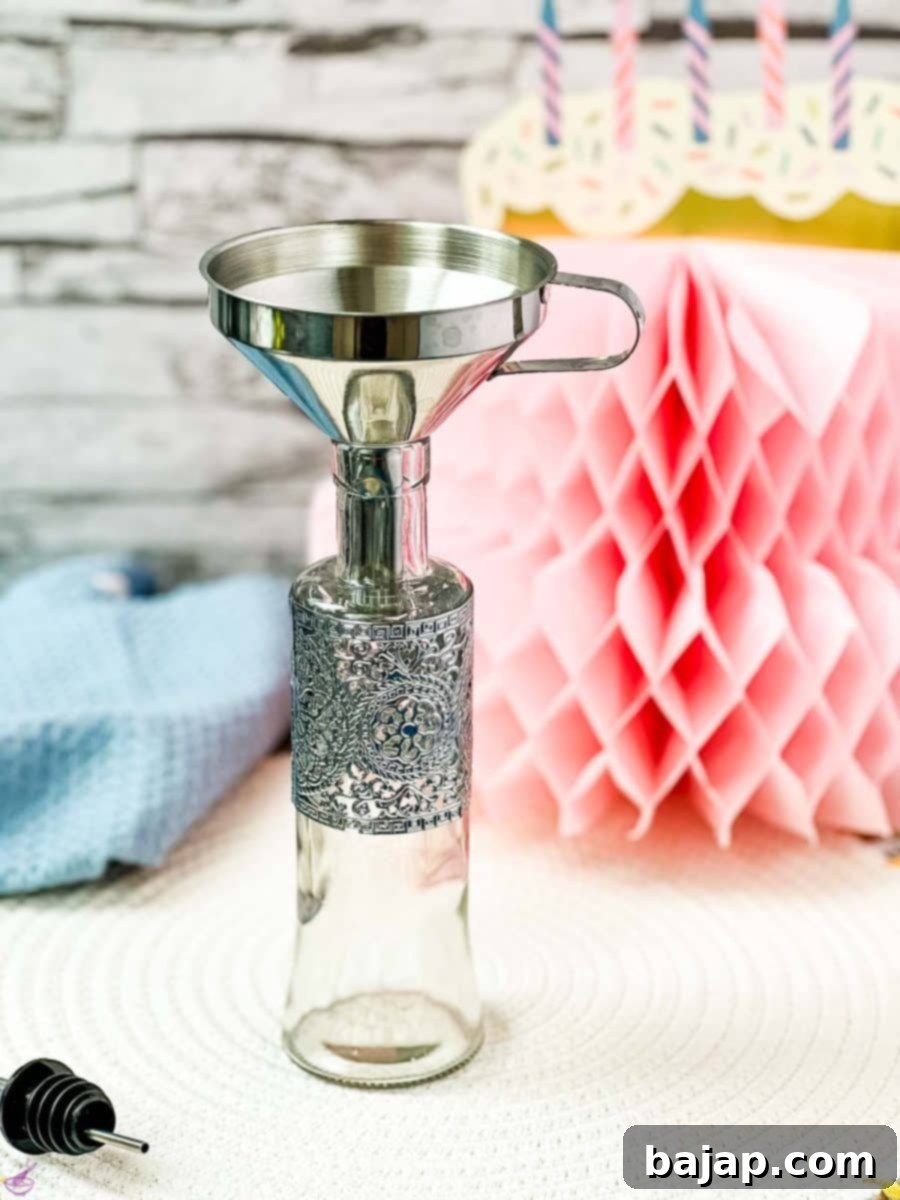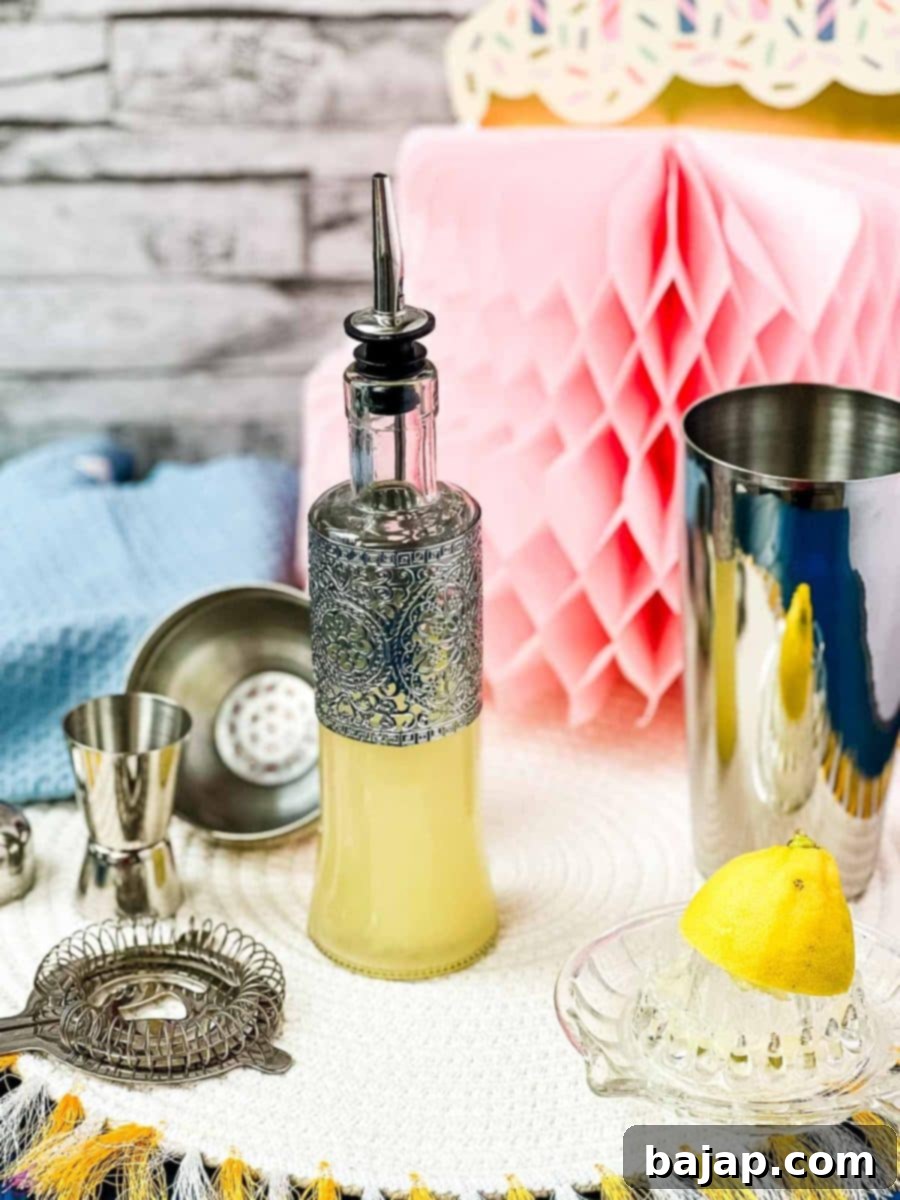Freshly Squeezed Lemon Juice: Unlocking Zesty Flavor & Wellness Benefits
There’s an undeniable magic to freshly squeezed lemon juice. While bottled alternatives offer convenience and a longer shelf life, they simply cannot replicate the vibrant, authentic flavor and potent health benefits of juice pressed directly from a ripe lemon. This golden liquid is a true kitchen essential, equally at home behind your bar for crafting exceptional cocktails as it is enhancing your daily health regimen or brightening up a culinary creation.
Beyond its refreshing taste, fresh lemon juice is a powerhouse of natural goodness. It’s brimming with essential nutrients like vitamin C, powerful antioxidants, and vital electrolytes, all without the unwelcome addition of artificial sugars or preservatives found in many commercial varieties. If you’re eager to infuse your life with a burst of natural flavor and a wealth of health advantages, this comprehensive guide will walk you through everything you need to know about making, using, and enjoying freshly squeezed lemon juice to its fullest potential.

[feast_advanced_jump_to]
🍋 Fresh vs. Bottled Lemon Juice: The Flavor Showdown
For discerning chefs, home cooks, and cocktail enthusiasts, the debate between fresh and bottled citrus juice is hardly a debate at all. The consensus is overwhelmingly in favor of fresh, and for good reason. When you compare freshly squeezed lemon juice to its store-bought, bottled counterpart, the differences are stark and immediately noticeable.
The magic of fresh lemon juice lies in its vibrant, complex flavor profile. Each drop is bursting with bright, tangy, and aromatic notes that are deeply pronounced and truly authentic. This is due to the pure, unadulterated citric acid and natural oils present in the fruit, which are at their peak when freshly extracted. Furthermore, when you squeeze your own lemons, you get the added bonus of the lemon itself. With a microplane, you can easily harvest the zest – the outermost layer of the peel – which is rich in aromatic oils and can elevate dishes and drinks to new heights. You simply don’t get this multi-faceted benefit from a bottle.
Bottled lemon juice, often made from concentrates, struggles to compete in terms of flavor intensity and purity. These products often undergo processing that diminishes their natural brightness and are frequently fortified with preservatives like sodium benzoate or sodium metabisulfite to extend their shelf life. While these preservatives keep the juice from spoiling, they can also impart a slightly metallic or off-flavor, masking the true essence of lemon. The convenience is there, but it comes at a significant cost to taste and natural quality.
While bottled lemon juice might be a handy emergency ingredient in certain cooking scenarios – perhaps when fresh lemons are completely unavailable, or you live in an area without easy access to seasonal produce – it’s generally best reserved for dishes where its flavor will be less prominent. For mixed drinks, delicate sauces, or any recipe where lemon is meant to shine, the difference in quality between fresh and bottled juice is so profound that anyone accustomed to real, fresh fruit will immediately taste the compromise. Opt for fresh whenever possible to truly experience the unparalleled zest and purity.
🍋 More Than Just Cocktails: Versatile Uses for Fresh Lemon Juice
While I wholeheartedly agree that fresh lemon juice is an absolute game-changer for cocktails and homemade lemonade, its utility stretches far beyond the bar cart. This versatile, bright yellow fruit and its invigorating juice offer a myriad of applications in your kitchen, health routine, and even around your home. Let’s explore some fantastic ways to incorporate more fresh lemon juice into your life:
Culinary Applications
- Dressings and Marinades: Lemon juice forms the acidic backbone of countless salad dressings, vinaigrettes, and marinades. Its acidity tenderizes meats and brightens flavors in fish, chicken, and vegetables.
- Baking and Desserts: From lemon tarts and pies to glazes for cakes and muffins, lemon juice adds essential tang and moisture. Don’t forget lemon curd, a classic treat!
- Sauces and Soups: A squeeze of lemon juice at the end of cooking can “wake up” the flavors in creamy sauces, clear broths, and hearty stews, balancing richness and adding a fresh finish.
- Preservation: A splash of lemon juice prevents fruits like apples, avocados, and bananas from browning due to oxidation.
- Seasoning: Use it as a natural flavor enhancer on roasted vegetables, grilled fish, or even a simple plate of pasta.
Health & Wellness Boosts
- Detox Drinks & Morning Rituals: Many people start their day with warm lemon water, believing it aids digestion, boosts metabolism, and provides a gentle detox.
- “Nature’s Gatorade” / Switchel: As mentioned, a personal favorite is this super hydrating, electrolyte-rich drink. While recipes vary, a typical Switchel combines fresh lemon juice (often a generous half cup) with apple cider vinegar, freshly grated ginger, maple syrup (or honey), a pinch of salt, and mineral water. This concoction offers comparable electrolytes to commercial sports drinks without the artificial flavors and excessive added sugars, making it an ideal natural way to replenish fluids and energy.
- Herbal Teas: Add a slice of lemon or a spoonful of juice to your favorite herbal tea for an extra dose of vitamin C and a refreshing kick.
Embracing fresh lemon juice in these diverse ways not only elevates the taste and quality of your food and drinks but also contributes positively to your overall well-being. It’s a simple, natural ingredient with powerful potential.
🍋 The Extensive Benefits of Fresh Lemon Juice

Fresh lemon juice is more than just a culinary ingredient; it’s a nutritional powerhouse lauded for a remarkable array of health benefits. This humble citrus fruit is packed with essential vitamins, minerals, and compounds that can significantly contribute to your well-being. Here’s a closer look at the extensive advantages of incorporating fresh lemon juice into your diet:
Rich in Vitamin C and Antioxidants
Lemons are an excellent source of vitamin C, a potent antioxidant crucial for immune system function. Vitamin C helps protect your body’s cells from damage caused by free radicals, which are unstable molecules linked to chronic diseases and aging. Regular intake of vitamin C can bolster your immune defenses, reduce the severity and duration of colds, and support overall cellular health.
Aids Digestion and Gut Health
The citric acid in lemons can stimulate the production of digestive juices, helping your body break down food more efficiently. Many people find that drinking lemon water, especially in the morning, can alleviate symptoms of indigestion, bloating, and promote regular bowel movements. Despite its acidic nature, lemon juice has an alkalizing effect on the body once metabolized, which can help balance pH levels.
Promotes Skin Health
Thanks to its high vitamin C content, lemon juice plays a vital role in collagen production, the protein responsible for maintaining skin elasticity and firmness. Antioxidants also help combat oxidative stress, which can lead to premature aging. While topical application should be done cautiously, consuming lemon juice can contribute to a healthier, more radiant complexion from within.
Supports Hydration and Electrolyte Balance
Adding fresh lemon juice to water not only enhances its flavor but also makes it more appealing to drink, encouraging greater fluid intake. This is crucial for maintaining proper hydration, which impacts everything from energy levels to cognitive function. When combined with a pinch of salt and a natural sweetener, as in a “Switchel,” lemon juice contributes to a natural electrolyte drink, replenishing minerals lost during activity.
Helps Prevent Kidney Stones
Lemon juice is rich in citrate, a natural inhibitor of kidney stones. Citrate binds to calcium in the urine, preventing the formation of crystals that can lead to stones. It also helps to break up small stones that have already formed, making it a valuable dietary tool for individuals prone to this painful condition.
Assists with Weight Management
While not a magic bullet, lemon juice can support weight management efforts. Its low calorie count and refreshing taste make it an excellent substitute for sugary beverages. The soluble fiber (pectin) found in whole lemons (though less in juice) can help you feel full for longer, potentially reducing overall calorie intake. The hydration benefits also contribute to a healthy metabolism.
Regulates Blood Sugar
Some studies suggest that the compounds in lemons may help moderate blood sugar levels, although more research is needed. Incorporating lemon juice into meals, especially those rich in carbohydrates, could potentially slow down the digestion of starches, leading to a more gradual rise in blood sugar.
Important Considerations: Enjoy in Moderation
Despite its numerous benefits, it’s important to consume fresh lemon juice in moderation. Its high acidity can, over time, erode tooth enamel. To mitigate this, consider diluting lemon juice with water and rinsing your mouth after consumption. Individuals with existing gastrointestinal issues like acid reflux or heartburn may also find that excessive lemon juice can exacerbate their symptoms. Listen to your body and adjust your intake accordingly.
🍋 Maximizing Your Lemons: Ideas for Leftover Peels
Don’t let anything go to waste! Once you’ve squeezed every last drop of juice from your lemons, the peels still hold a wealth of potential for both culinary and household uses. Before tossing them into the compost, consider these creative and eco-friendly ways to give your lemon rinds a second life:
Natural Cleaning & Deodorizing
- Scouring Agent: The textured side of a lemon rind, sprinkled with a little salt or baking soda, makes an excellent natural scrubber. It can effectively cut through grime, soap scum, and hard water stains on sinks, countertops, and bathtubs, leaving behind a fresh, clean scent.
- Garbage Disposal Deodorizer: Pop a few lemon peels into your garbage disposal along with some ice cubes. The ice helps sharpen the blades while the lemon peels release their refreshing oils, eliminating unpleasant odors.
- Grease & Stain Removal: The citric acid and oils in lemon peels can help lift grease stains from dishes, cutting boards, and even light sweat stains from clothing. Rub a peel directly onto the affected area before washing.
- Room Freshener: Simmer lemon peels in a pot of water on the stove with other aromatics like cinnamon sticks or cloves for a natural, uplifting citrus aroma that will permeate your home. Alternatively, you can dry the peels and burn them for a similar effect.
Creative Culinary Uses
- Lemon Zest: The most obvious, but incredibly versatile. Finely grate the bright yellow outer layer (avoiding the bitter white pith) to add intense lemon flavor to baked goods, savory dishes, marinades, and even cocktails.
- Candied Lemon Peels: Transform bitter peels into a sweet, chewy confection. Blanch the peels several times to reduce bitterness, then simmer them in a sugar syrup until translucent. They make a wonderful garnish or snack.
- Lemon Extract: Infuse vodka or grain alcohol with dried lemon peels to create your own homemade lemon extract, perfect for baking.
- Lemon-Infused Olive Oil/Vinegar: Steep dried lemon peels in olive oil or white vinegar to create aromatic infusions that are excellent for dressings, marinades, and cooking.
- Homemade Lemon Pepper: Dehydrate lemon peels until crispy, then grind them with black peppercorns and salt for a flavorful, homemade seasoning blend.
By utilizing the entire lemon, from its juice to its peel, you minimize waste and maximize flavor and functionality in your home.
🥘 Ingredients for Freshly Squeezed Lemon Juice

- Fresh Lemons (choose firm, brightly colored lemons with thin skins for the most juice)
See the recipe card below for precise quantities.
🔪 Simple Steps to Freshly Squeezed Lemon Juice
Making your own fresh lemon juice is incredibly straightforward, requiring minimal effort for maximum flavor. Follow these simple steps to ensure you extract every last drop of zesty goodness:
Preparation is Key
Before you even slice your lemons, there’s a crucial step that can significantly increase your juice yield: firmly roll the whole lemons on your countertop. Apply gentle pressure with the palm of your hand as you roll them back and forth for about 10-15 seconds. This action helps to break down the internal membranes of the lemon, making it easier for the juice to release when squeezed. You can think of this as a “pre-squeeze” that kickstarts the juicing process. For an even greater yield, you can briefly microwave your lemons for 10-20 seconds before rolling them.
Halving and Squeezing
Once prepped, simply cut each lemon in half. Now, you’re ready to squeeze! While you can do this by hand, a good quality lemon juicer or citrus press will make the process much quicker and more efficient, ensuring you get the most juice with the least strain.
Storage and Dispensing for Cocktails
If you’re making a batch of fresh lemon juice for crafting homemade cocktails – a decision that will truly elevate your bartending game – funneling the juice into a bottle equipped with a pouring spout is a brilliant tip. This not only keeps your juice fresh but also allows for quick, clean, and precise pouring when mixing drinks, dramatically speeding up your cocktail crafting process.


🍽 Essential Equipment for Juicing Lemons
To make the process of squeezing fresh lemon juice as effortless and efficient as possible, having the right tools on hand can make all the difference. While a simple fork can help extract some juice in a pinch, these items will ensure you get the most out of your lemons:
- Lemon Squeezer or Citrus Press: This is your primary tool. Manual handheld squeezers are affordable and effective for a few lemons, while larger citrus presses (manual or electric) are ideal for juicing bigger batches or different citrus fruits.
- Bottle or Jar: A clean bottle or jar with a tight-fitting lid is essential for storing your fresh juice.
- Funnel: A small funnel makes transferring the juice from your juicer to the storage bottle mess-free and efficient.
- Liquor Pourer Spout (Optional but Recommended): If you plan to use your lemon juice for cocktails, attaching a pourer spout to your storage bottle will allow for smooth, controlled pouring, improving your cocktail-making experience significantly.
- Fine-Mesh Strainer (Optional): If you prefer your juice completely pulp-free, a fine-mesh strainer can be used to catch any pulp or seeds after juicing.
🌡 Storage Tips & Maximizing Juice Yield
To fully enjoy the benefits of freshly squeezed lemon juice, understanding proper storage and techniques for maximizing your yield is essential.
Storage Best Practices
The freshness of homemade lemon juice is both its greatest strength and its biggest challenge. Unlike bottled varieties, fresh lemon juice contains no preservatives, meaning its shelf life is relatively short.
- Refrigeration: Freshly squeezed lemon juice should be stored in an airtight container in the refrigerator. It is best consumed within 1-2 days for optimal flavor and nutritional value. While it might still be safe to consume for up to 3-4 days, its vibrant taste and potency will diminish. Avoid squeezing large quantities if you don’t plan to use it immediately.
- Freezing for Longer Storage: For a longer-term solution, freezing is an excellent option. Pour freshly squeezed lemon juice into ice cube trays and freeze until solid. Once frozen, transfer the lemon juice cubes to a freezer-safe bag or container. These frozen cubes can last for several months and are perfect for adding to water, teas, smoothies, or using in cooking and baking recipes as needed. This allows you to always have fresh lemon juice on hand without the pressure of a short shelf life.
Tips for Maximizing Juice Yield
Getting the most juice out of each lemon isn’t just about squeezing hard; it also involves a little preparation:
- Roll ‘Em Out: As mentioned in the instructions, firmly rolling your lemons on a hard surface (like a countertop) before cutting them helps to break down the internal membranes, making them softer and easier to extract juice from.
- Warm Them Up: Chilled lemons yield less juice. Bring your lemons to room temperature, or even better, microwave them for 10-20 seconds before rolling and juicing. The warmth helps to loosen the fruit’s fibers and release more liquid.
- Cut Correctly: Cut your lemons lengthwise instead of crosswise. Some believe this allows for easier access to the internal membranes, resulting in more juice when squeezed.
- Use the Right Tool: While hand-squeezing works, a good quality lemon reamer or handheld citrus press will always be more efficient at extracting juice and reducing waste.
🙋🏻 Frequently Asked Questions About Fresh Lemon Juice
While bottled lemon juice contains citric acid and offers a basic lemon flavor, it’s generally not a good substitute for fresh lemon juice, especially in recipes where lemon is a prominent flavor. Fresh juice boasts a much brighter, more vibrant, and complex flavor profile that bottled varieties, often laden with preservatives, simply can’t replicate. The difference in taste and aroma is noticeable to most palates.
Realemon is indeed made from lemon juice concentrate and is marketed as 100% lemon juice. However, as with other bottled concentrates, it undergoes processing and often contains preservatives. For the best possible flavor and natural benefits, particularly in recipes or drinks where lemon is a key ingredient, I highly recommend using freshly squeezed lemons over concentrates like Realemon.
Yes, it is perfectly safe and often beneficial to drink freshly squeezed lemon juice. Many people enjoy it mixed with water (warm or cold), in herbal teas, or as part of detoxifying beverages. However, due to its high acidity, it’s advisable to dilute it and consume it in moderation to protect tooth enamel and avoid potential digestive discomfort for sensitive individuals. Always listen to your body.
To get fresh lemon juice, you simply need lemons! First, roll them firmly on a counter to break down internal membranes, which helps release more juice. Then, cut the lemons in half and use a lemon juicer or citrus press to extract the juice. While a juicer makes the process faster and more efficient, you can also squeeze them by hand. For pulp-free juice, strain it through a fine-mesh sieve.
On average, one medium-sized lemon yields about 2-3 tablespoons of juice. Therefore, you would typically need 4-6 lemons to get one cup (about 240ml) of fresh lemon juice. The exact quantity can vary based on the size, ripeness, and type of lemon.
Eureka and Lisbon lemons are common varieties known for being juicy and tart, making them excellent for juicing. Meyer lemons, a cross between a lemon and a mandarin orange, are less acidic and slightly sweeter, offering a different flavor profile that can be delightful for specific recipes or drinks. Look for lemons that are firm, heavy for their size, and have smooth, thin skins, as these tend to yield more juice.
Other Zesty Lemon Recipes for You to Try
- Lemon White Chocolate Chip Cookies
- No Bake Lemon Cheesecake with Blueberry Sauce
- Homemade Vodka Sidecar
- Immune Boosting Saffron Water
- Lovely Lavender Spritz Cocktail
If you make this recipe, let me know how you liked it by ★★★★★ star rating it and leaving a comment below. This would be awesome! You can also sign up for our Newsletter or follow me on Pinterest or Instagram and share your creation with me. Just tag me @combinegoodflavors and hashtag #combinegoodflavors, so I don’t miss it.
📖 Recipe

Fresh Squeezed Lemon Juice
Nora
Save RecipeSaved!
Pin Recipe
Equipment
-
1 Lemon squeezer
-
1 Bottle
-
1 Funnel
Ingredients
- 22 Lemons
Optional
- Water
- Sugar or other sweetener
Instructions
-
On a clean countertop, firmly roll each of the 22 Lemons to break down their internal membranes. This will help maximize juice extraction.22 Lemons
-
Carefully cut each lemon in half crosswise.
-
Using a lemon squeezer or citrus press, squeeze the juice from each lemon half into a bowl or measuring cup.
-
If desired, strain the juice through a fine-mesh sieve to remove any pulp or seeds.
-
Using a funnel, pour the freshly squeezed lemon juice into a clean bottle or airtight container for storage. For quick access for cocktails, add a liquor pourer spout.
-
Close the bottle securely and store it in the refrigerator. Use within 1-2 days for best quality. For longer storage, freeze in ice cube trays.
-
Optionally, you can dilute the lemon juice with Water or sweeten it to taste with Sugar or other sweetener if preparing for direct consumption or specific recipes like lemonade.Water, Sugar or other sweetener
Nutrition values are estimates only, using online calculators. Please verify using your own data.

🤎 You might also like
- Refreshing Cucumber Gin and Tonic
- The Complete Guide to Gin & Tonic
- The Perfect Blueberry Topping for Cheesecake
- Homemade Vodka Sidecar
⛑️ Food Safety
- Always use clean equipment when preparing food to prevent contamination.
- Wash hands thoroughly with soap and water before and after handling fresh produce.
- Ensure lemons are clean before juicing them.
- Store freshly squeezed lemon juice immediately in the refrigerator in an airtight container.
- Do not consume lemon juice that has been left at room temperature for more than 2 hours.
- Keep lemon juice away from raw meats or other potential contaminants to prevent cross-contamination.
For further information, check Safe Food Handling – FDA.
